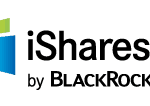One of the most talked about financial investment products today is the ETF, but most people really have no clue what these are or if they are beneficial to them as an average investor.
 An ETF is an ‘exchange traded fund’, but the full name really is an ‘exchange traded mutual fund.’
An ETF is an ‘exchange traded fund’, but the full name really is an ‘exchange traded mutual fund.’
So in most respects these are just mutual funds that track an index such as the S&P 500.
ETFs vs. Mutual Funds
Here are some key facts and the highlights of what the difference actually is between an ETF and a mutual fund:
- An ETF can be traded during the day and there are price fluctuations throughout the day, unlike a mutual fund that is available to be purchased and valued only one time each day.
- Unlike many mutual funds that have large minimum initial purchase requirements, an ETF can be bought in increments of single shares. They are subject to commissions similar to regular stocks, but Charles Schwab and Fidelity both have a range of commission-free ETFs available, so you’re able to purchase small quantities on a regular basis.
- An ETF does not try to outperform whatever index it is tracking, it merely attempts to match that index as closely as possible.
- An ETF is more tax efficient than a mutual fund as there are significantly fewer transactions internally that would lead to capital gains tax passed through to the shareholder.
- Since an ETF does not need active management to track and index, the administrative costs and expense ratios are much smaller than a mutual fund. Sometimes as low as .05%, which is incredibly small.
Click here to see all our posts in the Quick Tips series
Richmond Savers has partnered with CardRatings for our coverage of credit card products. Richmond Savers and CardRatings may receive a commission from card issuers.
